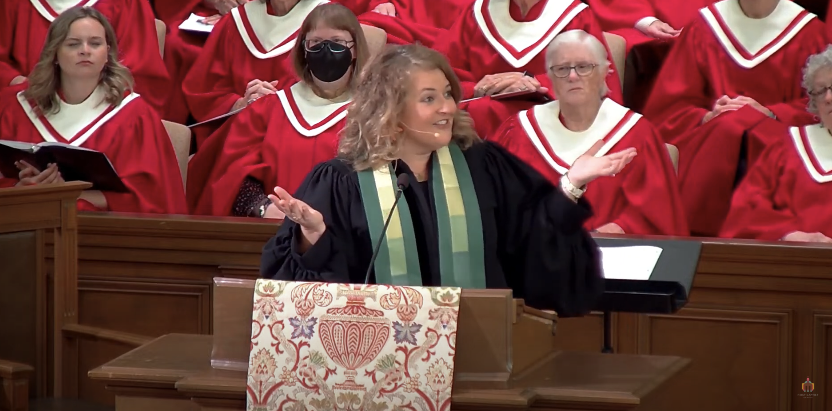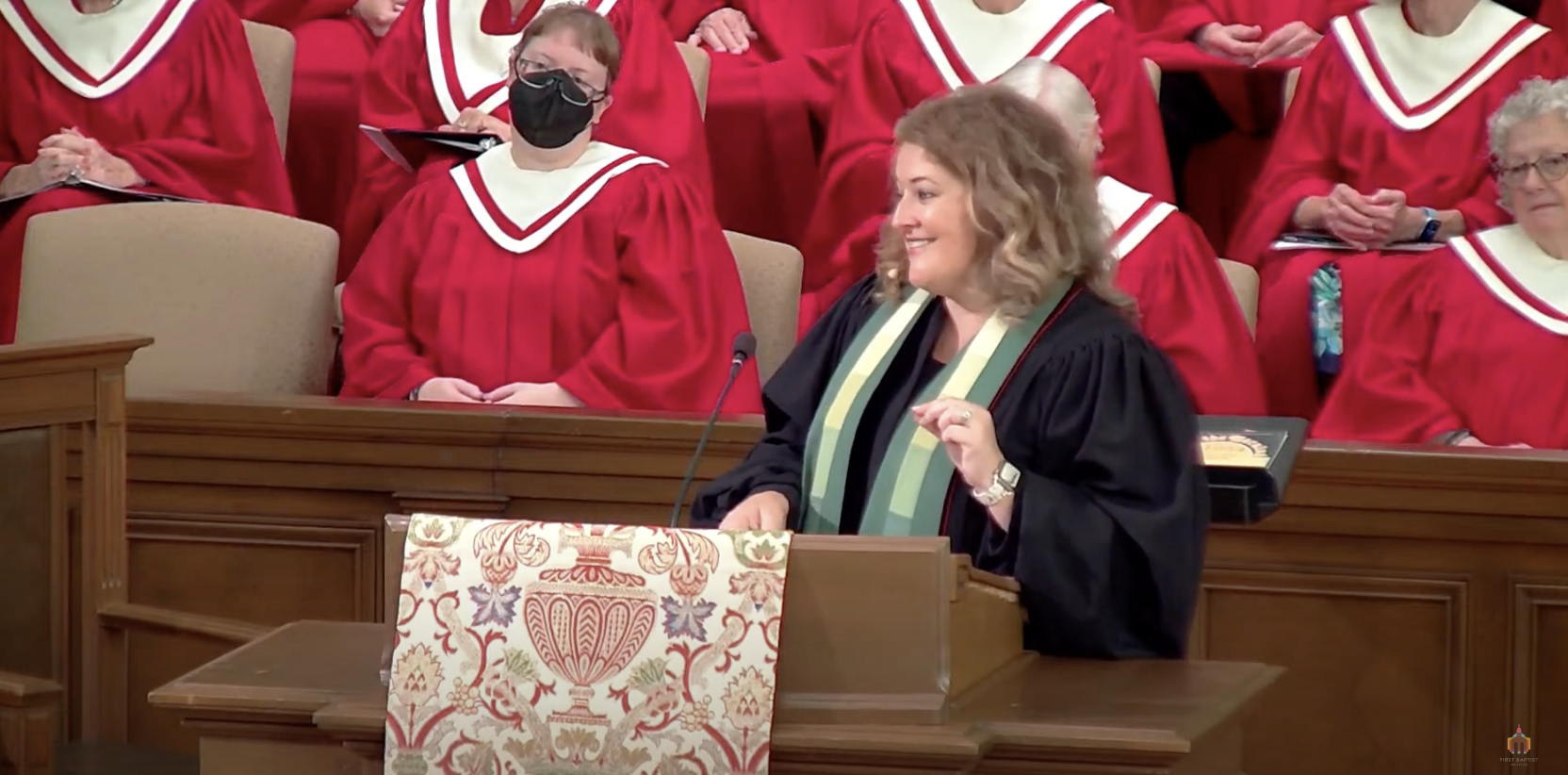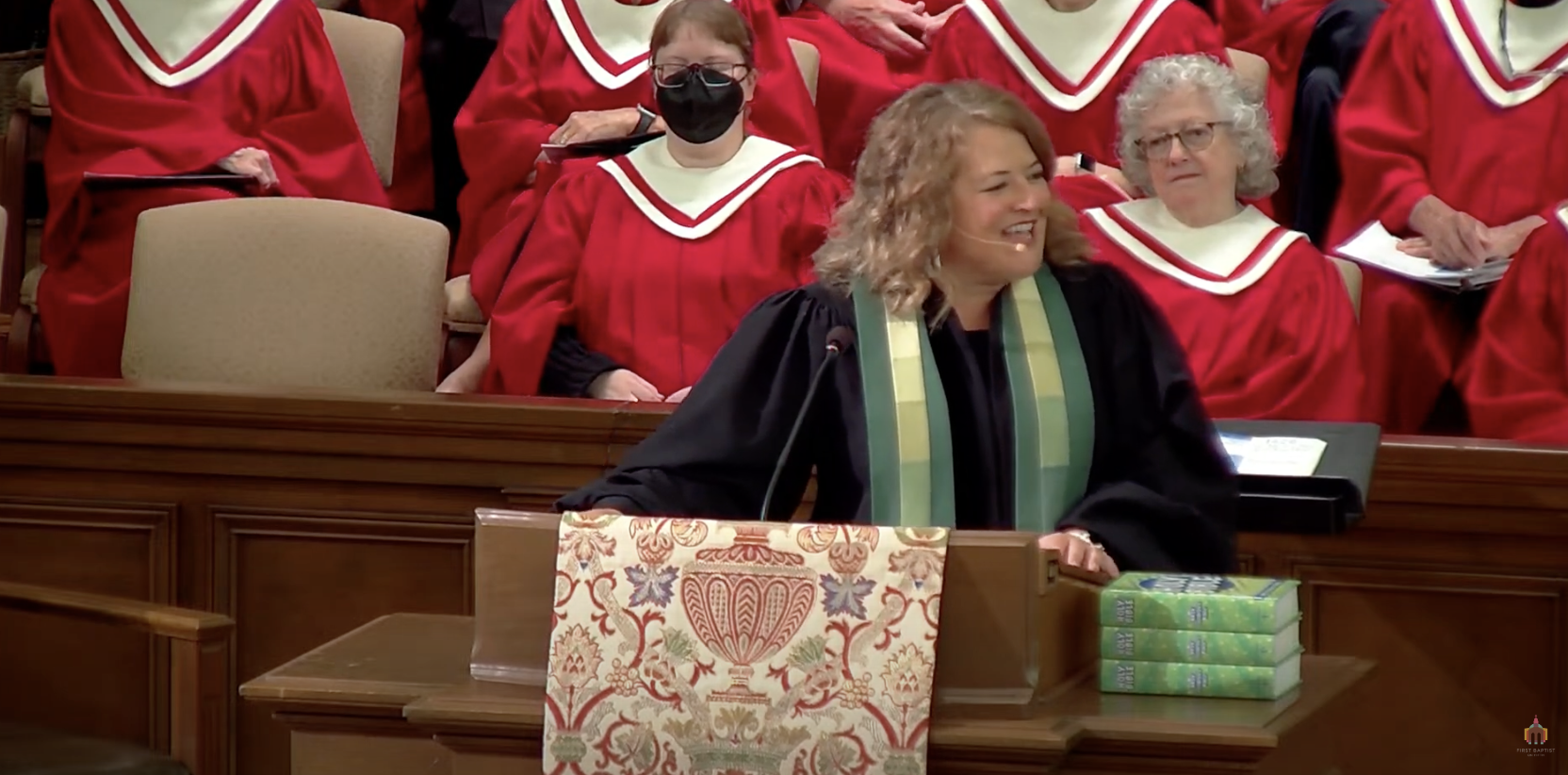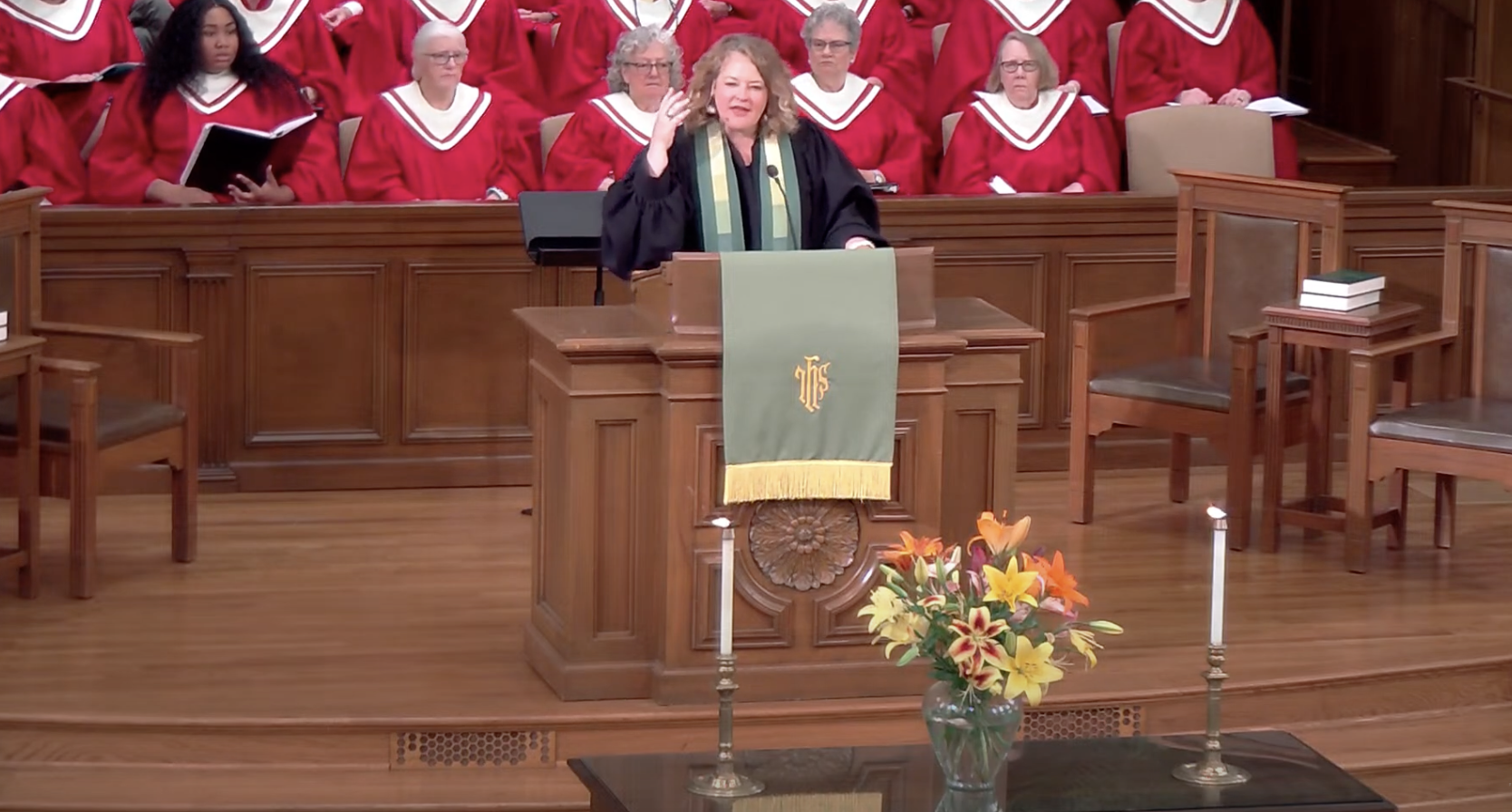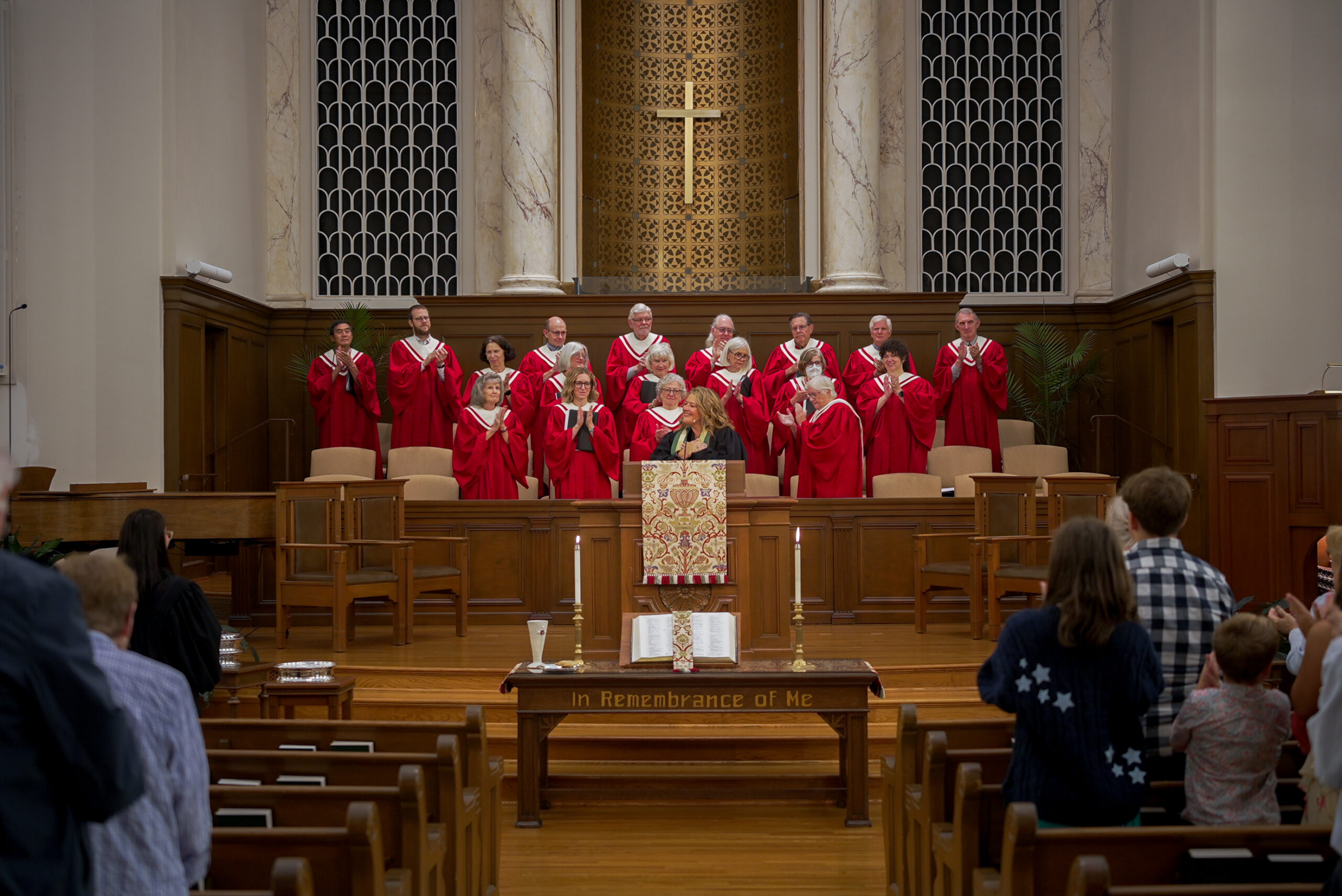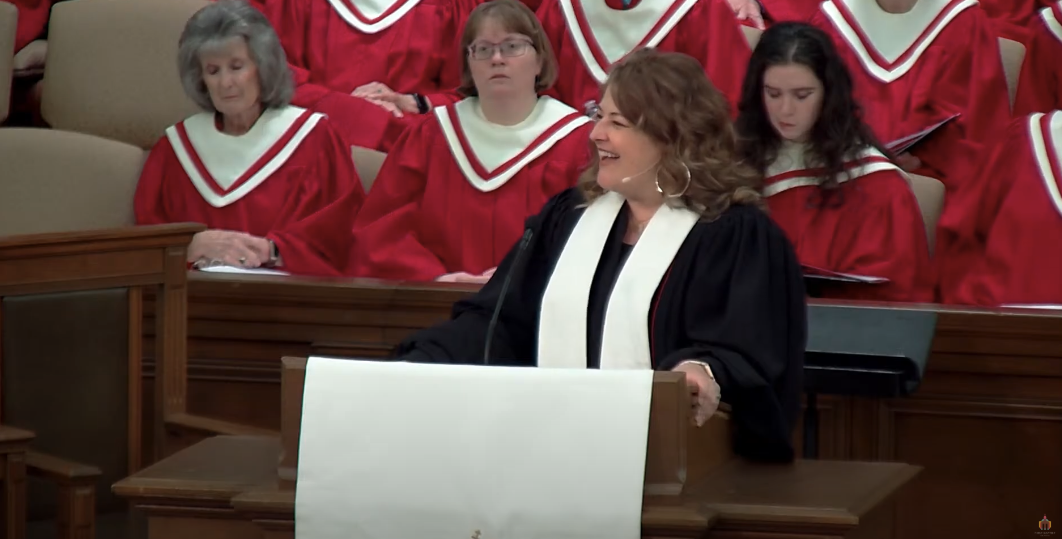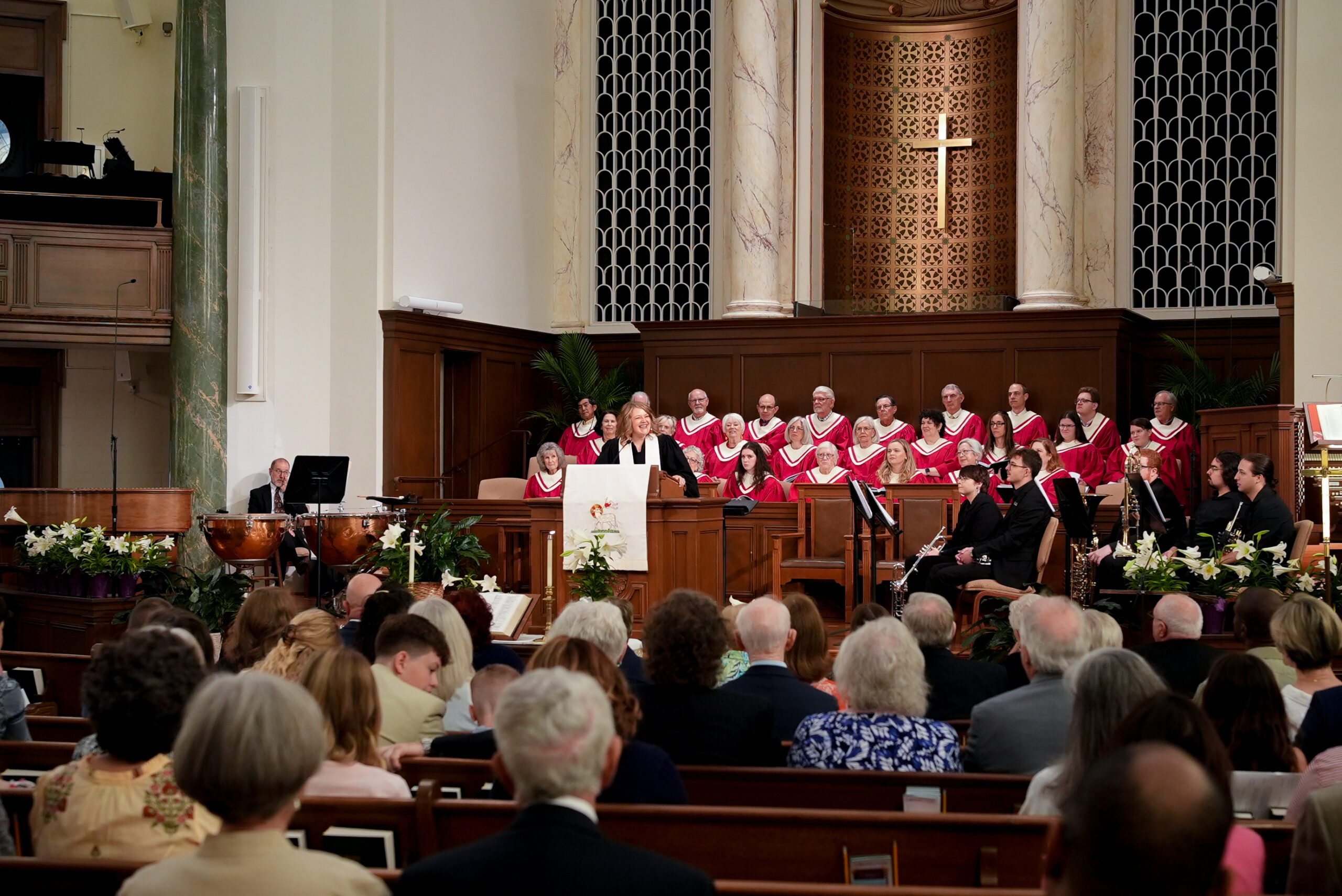I.About this time last year, a viral trend caught fire on the social media site, TikTok. In it, countless videos were captured and uploaded of women asking the men in their lives – brothers, fathers, partners, friends – “how often do you think about the Roman Empire?” The results might shock you. It seems that men – or at least the millions of men captured for TikTok! – can’t stop thinking about the Roman Empire! Multiple times a day for some! The women behind the cameras were bemused. Why in the world was the Roman Empire burning in the minds of men?
Maybe it’s because recent shows and movies have popularized that era of human history. Maybe it’s because the Roman Empire was so vast and long, 1000 years or more. Maybe it’s the vibes: the radiant artwork, the iconic architecture, those red-spiked helmets. Or maybe it’s the raw realities of that time and place, the lust and the melodrama, the violence and the victories. Who knows? (Not even the women of TikTok!)
Right in the midst of the reach of that Roman Empire existed a small patch of land called Israel and the people who lived within. There in Galilee, the Israelites were living under Roman rule. Soldiers and their helmets everywhere. Poverty, induced and enforced. Low wages and high taxes, day after day, with little hope of change to be found.
And among these Roman politicians, the common practice of gaining their citizens’ favor came through panem et circenses, bread and circuses. Free bread, with extravagant public entertainment on the side. The bread kept them working, and the entertainment kept them quiet. “Give them bread and circuses, and they will never revolt,” first century Roman poet Juvenal once said.
Locals get rowdy and out of hand? Placate them with food and games. Negative sentiment beginning to spiral toward a governmental threat? Maintain power through daily bread and distractions. Bread and circuses translates through the ages too, immortalized throughout history by kings and power-hungry politicians and young adult dystopian novels. People start asking questions about the way things work? Pacify them with a paycheck in one hand and a phone in the other. Humans getting fed up with policies that limit their capacity to thrive? Feed them takeout and Monday night football. Dined and distracted. People love a good show. It works nearly every time. As one author said of bread and circuses: “it’s one of the oldest tricks in the authoritarian playbook.”
II.Given such a context, you have to wonder if any of Jesus’s first hearers wondered the same about him. Was he just giving them bread and circuses too? He had fed them after all! And fascinated them with a miracle! Was this a diversion? Is this real? Is he a king? Where’s the catch? Jesus was no stranger to controversy, and these crowds knew it. As John tells the story, the grumbling and hand-wringing started all the way back when Jesus multiplied the Merlot! In every temple he cleansed, every outcast he honored, every child he healed (and on the Sabbath no less!), Jesus unhooked his life and message from their expected path, their norms, their boundaries.
Yet in perhaps his most unsettling teaching yet, Jesus starts talking about flesh and blood to a bunch of religious folk tasked with keeping kosher. “Those who eat my flesh and drink my blood have eternal life,” he says. “They abide in me and I in them. This is how they’ll live!” You can just hear in the crowds’ questions how unnerved they are. For the faithful who have been following him, and obeying him, and learning from him, and loving him, this teaching seems to stop them in their tracks and throw them into theological chaos. “This is more than we can stomach!,” the New English Bible translates.
And as the crowds winnowed to his closest disciples, the questions multiplied. “How can this man give us his flesh to eat?” “This teaching is difficult; who can accept it?”
These followers aren’t seduced by bread and circuses. They’re not sedated or satiated. They’re hungry for meaning, for something real, something that utterly orients the shape and direction of their life. But when Jesus offers the most intimate gift of his very flesh and blood, they weren’t sure. They hesitated. They second-guessed. They pulled away.
III.It’s no wonder this text has stressed out Christians for centuries. It’s hard! And complicated!
Our friend Bill Leonard tells a story of a Moravian friend of his who eats a vegan diet. One communion Sunday when her son was around six years old, they read this text in worship – “eating my flesh and drinking my blood” – and as the elements were passed around, her son whispered loudly to her: “Mom, we can’t eat this, we’re vegetarians!”
Beyond Moravian vegetarians, take any swath of the Christian community, and what they think happens when a pastor or priest stands at the table and says, “this is my body,” divides us. Our Catholic and Lutheran friends take this literally, while other Protestants – these Baptists included – assume Jesus to be metaphorical. We stand in the line of historical voices like Swiss reformer Ulrich Zwingli, who asserted that Jesus wasn’t being literal when he said, “this is my body,” because Jesus also said “I am the door!” That doesn’t mean he really was one! But this text discomforts us still.
It shouldn’t surprise us, then, that other swaths of our Christian family reach for an easier message. Theologian Will Willimon once got a piece of mail from an evangelist out in Arizona. “God has something good to give you!,” the postcard said cheerfully. Did he need a new car, or perhaps a way out of debt? “You’re in luck,” the evangelist wrote, “because God will bless you beyond your wildest dreams. And all it takes is an initial investment of $10.” Of course there were testimonials: the man who finally found his dream house, and the woman who got that promotion and raise she’d been after, all because they found Jesus and started sending the evangelist some money. “Jesus Christ is the best deal a person ever had!,” the words beside her smiling face on the postcard proclaimed. Bread and circuses, you might say.
Or in this political season, maybe the message we Christians reach for is not the easier one but the more powerful one. The one where we’re on top. The one where our wishes are prioritized above others. The one that comes with the handpicked judges, the laws and promises, the cushy status and privilege that are given to the majority rule.
But let’s not let ourselves off the hook here. We may not think faith works like this – the “pray for a car and get a car” kind of transactional prosperity gospel – but I’d be lying if I told you I didn’t hope for Jesus to make my life better, at least as a nice side effect to my belief! We may not assume we’re getting a raise or a house, but we sure hope for greater peace, enduring comfort, beloved community, and freedom from all that binds us, right? We may not be single-issue voters or want Christianity to be the law of the land, but we could just as easily get swept up in a dizzying high of joy and patriotism, and forget that the greatest story ever written was not the story of these United States, but rather the story of a crucified and resurrected Christ. Bread and circuses have many forms.
Friends – the hard truth of the matter is that for as wide as Jesus’s table of love is – and oh, it is wide – as welcoming of all who hunger for bread of life, as hospitable and joyful and ancient and true as we know it to be, eating this flesh and this blood is a risk! There is a cost here, Bonhoeffer reminds us. The gospel is bad news before it’s good news, Buechner says. This is about flesh and blood, life and death! This table is also an altar, a place of sacrifice and loss, the place through which we must pass with our pain and suffering and death before we find life on the other side. Can you see it through the beautiful cloth, the brass candles, the fresh flowers? Thomas a Kempis once said, “many follow Jesus to the breaking of bread: but few to the drinking of the cup of His Passion. Many revere His miracles: few follow the shame of His Cross.” Can you hear it?
Because when Jesus says, “eat my flesh and drink my blood,” he is reminding us that our bodies matter, that his body matters, that his body here on earth bears the fullness of God. Not as a thing to be dined and distracted, as the Romans did. Not as a vehicle for the soul which will soon be vacated to heaven, as Socrates said. Rather, Jesus’s body is the essence of God. Take it in, he says. Don’t settle for the fast food edition. Let me shape you from the inside out. Martin Copenhaver says that “For those who receive Jesus – the whole Jesus – his life clings to their bones and courses through their veins. He can no more be taken from the believer’s life than last Tuesday’s breakfast can be plucked from one’s body.
John tells us that when many of Jesus’s disciples heard this teaching, they said, “it is more than we can stomach. Too difficult. Who can accept this?” They turned back and no longer went with him, and we’re often not far behind. “Let this cup pass from me,” we cry. Too hard to love our neighbors. Too confusing to figure out what we believe about heaven and hell, or what happened on the cross, or why evil is doggedly persistent in this world. Too dangerous to sort out which Jesus we choose, which risks he wants us to take, which beliefs to sharpen and which to soften. Too bleak to set our sufferings on the table alongside our sustenance. Too … much to think about Jesus forming us from the inside out. Just give us the bread and circuses, we say. At least they’re easy to stomach.
But do you hear where the text takes a turn? When many of Jesus’s disciples decide they can’t go any further, Jesus asked the twelve that remained with vulnerability if they wanted to leave too. With equal parts truth and grace, it’s Simon Peter who confesses, “Lord, to whom can we go? You have the words of eternal life!” To whom can we go, Jesus? If not you, then who? We’ve given it all up for you. We’ve committed it all to you. We’ve seen something in you that has changed the course of our lives. Yours is the way we want to walk. Yours is the struggle we want to take up. No more excuses or exhaustions. No more habits that destruct or hopes that disappoint. No more dining and distracting. Give us the bread of life and the cup of salvation. Give us the table and the altar. It sounds to my ears like a bit of resignation and a lot of resurrection.
IV.Let me tell you a story. Theologian Henri Nouwen once had an encounter with an author named Dan Wakefield. Wakefield had begun to experience a spiritual awakening back in the 1980s after, as he puts it, “years of seeking salvation through drugs, alcohol, and promiscuity.” He struggled to find words for the awakening he was finding, which he said “can be best described as a ‘thirst’ for spiritual understanding and contact: to put it bluntly, I guess, for God.”
While that journey to God was exhilarating, Dan didn’t lose the self-doubts and setbacks as he assumed would happen. He said that sometimes he felt like a passenger in a prop plane, like you might remember from the 1930s movies, “caught in a thunderstorm, bobbing through the night sky over jagged mountains without a compass.” But in the discomfort, he began attending church. He summoned the courage to tell his pastor about what he was going through, and that pastor put a copy of Reaching Out by Henri Nouwen in Dan’s hands. So formative was this book in Dan’s life, he read more: A Cry for Mercy, The Life of the Beloved, another and another, and extended that courage to write a letter to Nouwen asking to meet.
When they finally gathered at the table for lunch, Dan was so appreciative that Henri agreed to meet with him and told him as much. But then the mood shifted as Dan told Henri that Henri’s confession of struggles and doubts in the book A Cry for Mercy had really discouraged him. “If someone as spiritual and mature as you struggles,” he asked, “then what hope is there for a beginner like me?”
You see, Henri could have tempered that anger with a meal and a condescending word that he’d soon learn. He could have distracted Dan with another topic or encouraged him to give it all up. Instead, Henri Nouwen put down his fork and told Dan that contrary to popular opinion, “Christianity is not for getting your life together.” That truth stuck with Dan through the years, and when life sent him spiraling again, he remembered Nouwen’s words which enabled him to hang on until, as he says, “the storm broke, like a fever.” “I was grateful,” Dan writes, “but I also knew such storms would come again, perhaps more violently. I learned that belief in God doesn’t depend on how well things are going, that faith and prayer and good works do not necessarily have any correlation to earthly reward or even tranquility, no matter how much we wish they would and think they should.”
V.Friends, might we feel the call of Jesus today to trade bread and circuses for bread that is given for the life of the world? When the empires of this world keep us fed and distracted, small and placated, might we choose instead to be nourished by the very essence of God? When the choice is set before us to choose the easy way or the powerful way, might we choose the way of Jesus – of death and life, of table and altar, of cross and tomb, of truth and grace? When we wonder “Lord, to whom can we go?,” an echo will rise within us of the late Rachel Held Evans, who once said, “I am a Christian because the story of Jesus is the story I’m willing to risk being wrong about.” Blessed assurance, Jesus is mine! Amen.


